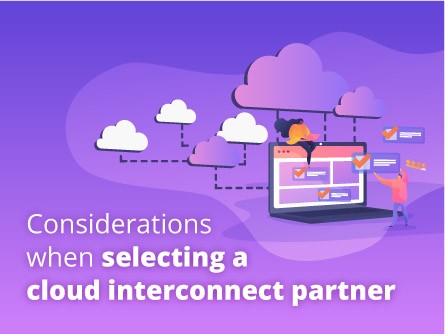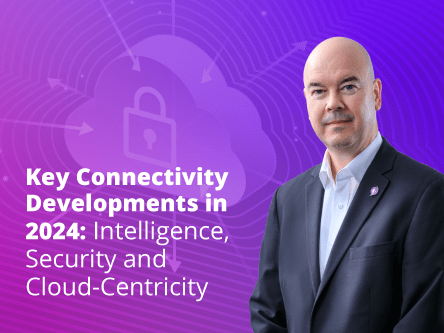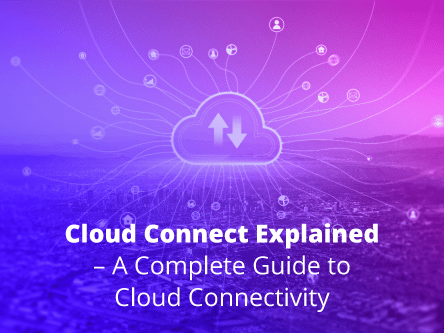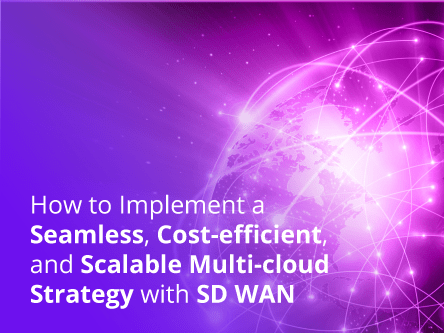With the current state of cloud adoption, businesses are looking to bolster their service capabilities and offerings for the uncertain future ahead. They now need to manage access to multiple cloud service providers (CSPs) regardless of the cloud infrastructure adopted.
This means being able to optimise connectivity to the various services, applications and data management options on the cloud. In this case, businesses naturally want the maximum flexibility and ability to access the widest selection of CSPs securely and at scale.
The strategy behind choosing a cloud interconnect partner is beyond just performance. A flexible cloud connectivity solution boosts an organisation’s ability to meet the varied needs of its downline customers. Yet, with so many potential interconnection partners out there, choosing the best one for a specific business growth strategy is tricky.
THE FOUR KEY AREAS TO CONSIDER
Considering your core business, the options for selecting a connectivity partner can be pared down to several key requirements. Among the staple criteria for ensuring successful partnership are four essential considerations:
• Diversity of interconnection options
The ideal partner should offer access to a wide selection of CSPs for interconnection now and in the future.
Other than the major names such as Amazon Web Services, Google Cloud and Microsoft Azure, what value-added connectivity is available in terms scalability, security and stability?
The questions you need to ask must address these factors, including:
- CSP ecosystem – Does the potential partner have the mindset and ability to constantly grow its interconnect ecosystem? Will it be easy to manage multiple cloud connections in terms of a single service management platform, for example?
- Scalability- How fast and friction-free is the day-to-day scalability of the interconnection pipes? Is there a proven platform for such critical connectivity management that is officially recognised by the industry?
- Security – Does the potential partner offer a spotless track record in providing reliable and high-performance direct connections to CSPs. Is their network exposed to the public Internet?
- Stability – How stable are the connections and is network optimised for best performance? What is the technology behind the assurance of stable, low-latency connectivity?
• Locations of cloud on-ramps
Service providers strive to establish points of presence (PoP) with cloud on-ramps in as many regions as possible. With more cloud on-ramps, they will be able to deliver cloud connectivity services with a more competitive price model. Such cloud on-ramps help to lower overall network costs as well as improve network performance.
However, it is hard to find a provider who has the level of network resources and strategies to meet your requirements.
Some providers are only able to support cloud on-ramps in a limited region or require additional service providers to extend network connectivity.
• Robust Network Fabric
Ideally, potential cloud interconnect partners should be able to deliver you a service over a global, carrier-grade backbone network. This is a signal of their serious commitment to interconnectivity. This level of commitment usually translates into a network fabric of data centres to ensure flexibility and availability of cloud on-ramps.
• Operational flexibility
Even when a cloud interconnect partner meets the above considerations that meet your business expansion needs, there remain concerns around:
- Operational flexibility
- Ease-of-use
- Support for network intelligence
- Seamless interfacing with other CSPs
Ideally, the cloud interconnect partner should have able to deliver services self-service on-demand software-defined networking (SDN) platform.
- Reputability
- Track-record
- Partnership flexibility
- Quality of Service (QoS)
When all that are in place, the rest will take care of itself.







